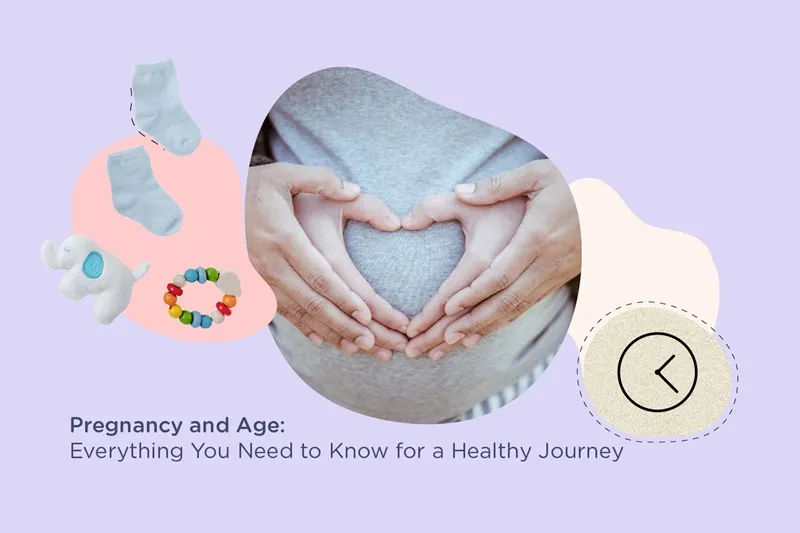Pregnancy and Age: Everything You Need to Know for a Healthy Journey
August 9, 2024
Very few understand that conceiving a child and becoming parents is a very special and also a very personal journey. It is only you and your partner who should decide when and whether you want to take on this role at this point. What may seem 'too late' for others, may be the ideal time for you both.
There are so many factors that count - from emotional readiness, financial stability and a good support system to individual health of partners, stress and career trajectories.
For a woman, her eggs age as she grows older. This means that they are more likely to become chromosomally abnormal over the years, which would affect the DNA of the egg and lead to cells functioning erratically. In such cases, they may not fertilize properly or mature into a healthy fetus.
However, while these are one side of the situation, there are also the practical and biological aspects of pregnancy. Here we share some insights about women conceiving at different ages.
In the 20's:
Conceiving while you are in your 20's is usually easier as your fertility is better. 90% of your eggs are genetically normal, and your chances of having a healthy and normal baby are very high. The risks of miscarriage, genetic complications or pregnancy complications are also at their lowest.
Unless a woman has health challenges like PCOD, endometriosis, or something equally complicated, she will find it fairly easy to conceive at this age.
In the 30's:
After turning 30, the chances of conceiving successfully decline by about 2 - 3% each year. However, becoming pregnant is still very possible, and with some additional precautions it can be comfortably achieved. After the age of 35 or 36, fertility drops sharply, and a woman has about 25,000 eggs left. This is just 2.5% of what she originally started out with.
In current times, with both partners working in urban cities and towns, we see more and more couples delaying their pregnancy and becoming parents in their 30's.
In the 40's:
Women over 40 have maybe 5 - 10% chances of conceiving naturally, and less than 5% after they turn 45. There is also a 50% risk of miscarriage owing to several health factors, and so one must proceed with a lot of care and caution.
The later the pregnancy, the more chances of complications like preeclampsia, preterm babies, gestational diabetes or birth defects due to chromosomal issues.
While these are general observations by studies across the world, there are always exceptions. We have all heard of instances of women in our grandmothers' generation who became pregnant again in their late 40's or even around their menopause, and delivered healthy babies.
Becoming a mother, at any age, is an incredible and overwhelming journey. It should be taken on only when you are ready and happy to do so. Though elders or outsiders may give their opinions and advice, you and your partner are the ones who have to decide.
Take your time to make an informed decision, and reach out to the experts when you feel uncertain or confused.
To know more, call: 1860 500 4424


